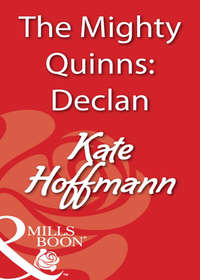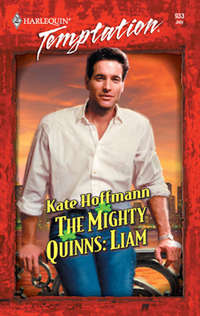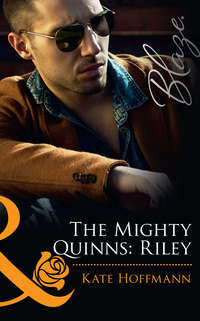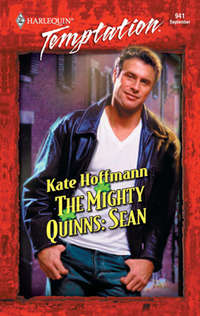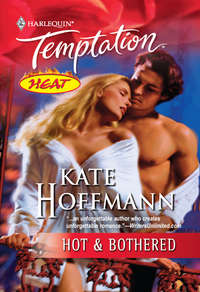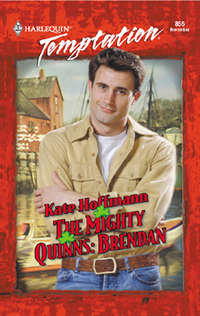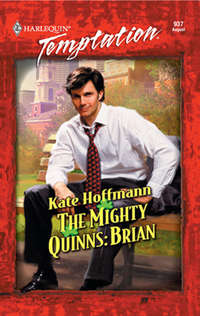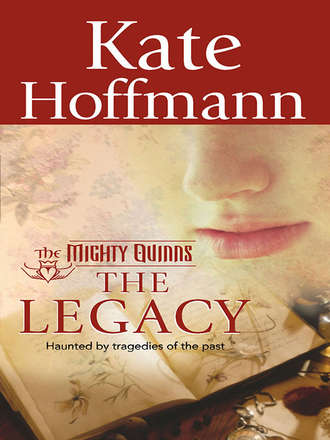
Полная версия
The Legacy
“We cannot keep her or her daughter in this house,” he said. “I won’t have it.”
“She’s worked as a domestic before and she claims to be an excellent seamstress.”
“Let’s be candid with each other, shall we, Geneva? You don’t need a seamstress. You want that child.”
Edward watched as his mother’s face grew pale. She slowly rose, her hands clutched in front of her. “Why can’t you do this one thing for me?” she asked in a strangled voice. “Just let me have what I need. I will make my way through this, I promise. But I have to deal with this in my own way.”
“This child is not yours,” he warned. “And if I see you becoming too attached, I will force them out of this house. And if I see any strange behavior from you, then you will return to the hospital until you are able to comport yourself in a proper manner. Is that understood, Geneva?”
His mother nodded. “Yes, Henry.”
“This will not become an obsession, or I will call an end to it.”
“I understand,” she replied.
He picked up a ledger from his desk and opened it, focusing his attention on the columns and rows of numbers. “That is all.”
Geneva circled his desk, then placed a dutiful kiss on his cheek. “Thank you, Henry.” With that, she swept out of the room, her head held high, her eyes watery with tears. She didn’t even notice Edward standing outside the door, brushing right by him, her skirts rustling.
A few moments later, Edward walked into the library, his footsteps silent on the thick Oriental carpet. He stood in front of his father’s desk, his heart slamming in his chest. When his father finally looked up, there was an expression of impatience etched across his face. “What is it?”
“Are you going to send Mummy away again?”
“That is none of your concern,” he said.
“Please don’t send her away,” Edward begged. “I promise, I’ll watch over her.”
Henry Porter stared at his son for a long moment. “And will you tell me if she begins to confuse this Irish urchin with your sister Charlotte?”
Edward nodded, crossing his fingers behind his back to lessen the lie. “I will, Father,” he said.
His father nodded slowly. “You’re a good boy. And I think you understand how important it is that your mother keep her wits about her. She has been very emotional lately and that’s not good for anyone. You must try to distract her from her worries.”
“I will. I’m good at that.”
“Very well,” his father said. “I’m glad you see things my way. Run along now, Edward, I have work to do.”
Edward hurried out of the library and when he reached the safety of the hallway, he uncrossed his fingers and asked God to forgive him for the lie. It wasn’t really a sin to lie when he was just doing it to make his mother happy, was it? She’d suffered so much over the past few years. And if Rose and little Grace were the key to her happiness, then Edward would do everything in his power to make them both stay, his father’s wishes be damned.
“What are you doing out here?” Malcolm strode down the hall and gave Edward a hard shove, sending him back against the wall. “I thought you’d be in the nursery playing with that little brat Mother brought home.”
“She’s not a brat,” he said.
Malcolm sent Edward a look of utter disdain. “That brat is going to steal every minute of Mother’s time. She won’t pay attention to you anymore. She won’t even see you, just like she doesn’t see me. Get used to it, Edward. It’s only a matter of time before she loves you less than she loves me.”
“Maybe if you’d be nicer to her she’d love you again,” Edward accused.
“I don’t need her,” he replied. “Neither does Father. You’re the only one in this family who still cares for her and that’s because you’re still a baby.”
“I am not!” Edward shouted, lashing out at Malcolm. He shoved against his chest, but Malcolm had three years on him and considerable strength.
Malcolm grabbed Edward’s arm and twisted it behind his back, then pushed him up against the wall. “Don’t ever touch me again,” he muttered, his breath hot against Edward’s ear. “If you do, I’ll just find a way to take it out on that little Irish girl you’re so fond of.”
He gave Edward’s arm a final twist, then pasted a smile onto his face and walked into the library. As Edward stood outside, he listened as his older brother spoke with his father, the conversation relaxed and friendly.
The lines of loyalty in the Porter house had been clearly drawn since Charlotte had died. His older sister had held them together as a family, but they were on different sides now—Malcolm and Henry against Edward and his mother. Even though Edward was younger, he wasn’t afraid of his brother. Malcolm may be stronger and taller, but Edward was far more clever. He would do what it took to protect his mother, even if that meant destroying Malcolm in the process.
CHAPTER THREE
ROSE SAT AT THE WINDOW in her room above the coach house, sunlight spilling onto her lap and illuminating the mending that rested there. She rubbed her eyes, trying to wipe away the fatigue that seemed to descend upon her in the early afternoon.
Though it had been three years since she’d been rescued from the streets by Geneva Porter, her health hadn’t fully returned. Her lungs were often congested and her eyesight had begun to falter. Though she was strong enough to work, she was left with far too little energy to raise a rambunctious daughter. She tipped her head back and closed her eyes, remembering the first months of her stay at Porter Hall.
It hadn’t taken long to understand the strange dynamics of the Porter family. Geneva’s “illness” wasn’t an illness at all, but a chronic melancholy that seemed to grip her without warning. She’d visited countless doctors and taken just as many remedies, but the only thing that drew her out of her depression was Mary Grace.
The little girl, now six years old, had became a balm to Geneva’s spirit and whenever she felt her mood darkening, she’d come to the carriage house to fetch Mary Grace and spend the afternoon in the garden, watching her chase butterflies and pick flowers.
In the beginning, Rose hadn’t minded. She believed a strong bond between the two would only help her position in the household. But it had also caused some jealousies with the other, more senior, staff members. Geneva’s maid, Ruth, had distrusted Rose from the start and jumped on any opportunity to drive a wedge between Rose and the mistress of the house. Cook was chilly and aloof, perturbed that she was expected to deliver meals to the carriage house for Rose and Mary Grace, while the rest of the staff took their meals in the kitchen. And their quarters had been decorated with many little luxuries from the attic, so different from the cold and sterile servants’ rooms on the third floor of the manor house.
But Rose wasn’t going to feel guilty for her position with Geneva Porter. If Geneva’s affection for Mary Grace would keep them warm and well-fed, then who was she to deny her mistress anything? Or her daughter? She glanced over to the corner and watched as Mary Grace bent over an old wooden box she’d found.
“What are you doing, my girl?” Rose asked. “What do you have there?”
Mary Grace picked the box up and carried it over to her mother. She opened the top to reveal a variety of woodcarving tools. “Where did you find these?” Rose asked.
“In the stables. Under a pile of hay.”
“Do you know what they are?”
Mary Grace shook her head. “I’m going to give them to Edward. He’ll know what they are.”
“They’re woodcarving tools,” Rose said. “And I think Edward would like these. He’s always carving with that little knife of his. He’d do much better with a fine set of tools like these.”
“I’ll give them as a gift. Maybe for Christmas,” Mary Grace said. “Or Edward’s birthday. He’ll be ten years old in…” She screwed up her face as she tried to remember. “Soon.”
Rose smoothed her hand over the top of the box. “Why, we could find some paint and put his monogram on the top. That would make the gift very special.”
“What’s a monogram?” Mary Grace asked.
“Edward’s initials. Fancy folk put their initials on everything they own. That way everyone knows who it belongs to.”
A box of old tools was little to offer in return for what the Porter family had given Mary Grace. Clothes had magically appeared in the wardrobe and new dolls would find their way into the old chest at the foot of the bed. Books full of beautiful, hand-tipped drawings were stacked on the table beneath the window and nearly every day, Mary Grace would return from the house with some tiny trinket, an old piece of jewelry or a hair ribbon.
Even if Jamie had lived, he never would have been able to provide so well. But Rose knew all the lovely luxuries came at a price. She just hadn’t been asked to pay it yet. Whatever it was, she’d simply remember that her daughter was happy and healthy and that was worth more than anything in the world to her.
A soft knock sounded on the door and Mary Grace jumped up to answer it. To Rose’s surprise, Geneva stood on the other side. Lady Porter had never been to Rose’s rooms. When she’d wanted to speak with her, she always sent someone to fetch her and they talked in her parlor. And now she was here with tea, all laid out on a silver tray.
Mary Grace jumped up from her spot and ran over to Geneva. She helped her lay the tea service out on a small table as if she’d been doing so for years. Rose watched them make the tea, then realized that they’d probably had tea together often. When they finished, Geneva pulled a hard candy from her pocket and placed it in Mary Grace’s palm. “Run along now, Grace. I need to talk to your mother.”
“Thank you, Lady Porter,” the little girl said with a curtsey.
“Edward is out in the garden. Why don’t you go visit with him.”
They both watched as Mary Grace skipped through the door, her pretty skirts flying out behind her.
“I hope I’m not disturbing you,” Geneva said. She handed a cup of tea to Rose. “There’s sugar and milk. Do you take either?”
Rose shook her head, unsure of how to respond. It wasn’t the choice of sugar or milk, but the fact that her mistress was waiting on her. “Is everything all right?”
“Yes, of course.” Geneva poured herself a cup, then grabbed a chair from the table and set it in front of Rose. As she sat down, she smoothed her hands over the skirt of her elegant frock, then crossed her ankles. “There is something I’ve come here to discuss with you. It’s about Grace.”
“Has she caused some trouble? I try to keep a close eye on her, but sometimes she does wander off.”
“She’s six years old and I know that you plan to send her to the parish school in the village when the term begins next month. I’m sure you’re aware that she’s a very bright child.” Geneva cleared her throat. “You’re also aware that I’ve grown quite fond of her since you’ve both come to live here.”
“Yes,” Rose replied. “And I thank you for everything you’ve given her. You don’t know how much it means to me to know that she’s safe and healthy.”
“But that isn’t always enough,” Geneva said. “There will come a time when Grace will have to make her own way in the world and to do that, she must be educated. I would like to take responsibility for this.”
“But I’m certain she’ll learn everything she needs to know in school,” Rose said. “And I’d prefer her to have a religious education.”
“I don’t think sending her off to a parish school will really serve her well,” Geneva said. “I’d like to provide her with a tutor. That way, she can get the very best education. And, when she’s older, if she wants to have a profession, then she’ll be prepared.”
“But the parish school would—”
“The parish school will teach her just enough so she can keep house and cook meals and raise children,” Geneva said. “I’m talking about more. French and art history and literature.”
“Why would she ever have need of that?”
“Maybe she won’t,” Geneva said. “But it will expand her mind. It will make her want more for herself than what most Irish girls do.”
“It will make her yearn for things she can never have,” Rose countered stubbornly. It was the wrong thing to do. Every ounce of sense told her that the more Mary Grace came to depend on Geneva, the more she’d be hurt when she realized this fine life was far beyond her reach. Perhaps this was the price? Her daughter’s broken heart?
And if she turned Mary Grace over to Geneva’s care, then what part would she play in her daughter’s life? Mary Grace had already become accustomed to the luxuries of life at Porter Hall. Rose wanted to believe that the time they spent together as mother and daughter would form the woman she’d become. “It is too generous,” she said. “I’m sure Lord Porter would not approve.”
Geneva’s eyebrow shot up and she gave Rose a cool look. “My husband would have you both out on the street again. It is only my generosity and affection for Grace that keeps you here.”
In that single sentence, Rose knew the decision wasn’t hers to make. She could either chose to fight and lose, or surrender immediately. “I see. And what say will I have in my daughter’s life?”
“You know you are ill,” Geneva said, her voice suddenly conciliatory. “You grow weaker by the day. Consumption is not a disease that one recovers from, my dear.”
Just the word sent a shiver down Rose’s spine. She suspected that her bouts with lung fever were more than just a passing illness, but hadn’t wanted to admit there was something more serious affecting her health. And if she admitted it now, then surely she would be put out. “It’s not consumption,” she said. “My lungs were weakened by fever while Grace and I were living on the streets. It hasn’t affected my work. And I will recover.”
Geneva stared at her for a long moment, then smiled. “Of course you will. But the more time she spends at the house with me and her tutors, the more time you have to rest and recover.”
“I—I suppose you’re right,” Rose said.
“Of course I am. We are agreed then.” Geneva stood and smoothed her hands over the waist of her frock. “I’m so glad we had this little talk. I’ll see to hiring a tutor for Grace. And she’ll begin her studies next month.”
Rose got to her feet and gave her a curtsey. “Thank you, Lady Porter. For your generosity. I’m sure that my Mary Grace will do her best to please you.”
Geneva nodded, then walked out of the room, closing the door softly behind her. Rose immediately went to the wardrobe and grabbed an armful of clothing, tossing it on the bed. They couldn’t stay. They would leave tonight, sneak off while the family slept. She’d be able to find another position, perhaps not one as comfortable as this, but certainly with her experience and— A fit of coughing overtook her and Rose bent forward, her hands braced on her knees, gasping for breath.
When she regained her composure, she sat down on the window seat and pressed her palm to her chest. There would be no references. And without references, there would probably be no job. Who would hire her? Geneva was right. She was sick. And she had a daughter who wasn’t yet old enough to take care of herself. Her choices were no better than they had been that day when Geneva found them on the front steps of the church.
The money she’d saved would last them three or four months at the most and after that, they’d be right back to where they began. There would have to be another way to hold on to her daughter. Rose took the clothes back to the wardrobe and carefully hung them up, then noticed the diary sitting on the top shelf.
She closed her eyes and hugged it to her chest. This would be the way. Since she’d arrived at Porter Hall, she rarely opened it. But now, she’d begin reading it to her daughter. And if the day came when she was no longer in this world, then her daughter would know where she came from. And she would remember.
She opened the leather-bound book and began to read a passage, the words coming back to her, renewing her strength. She would go on one more day, and after that, another. And no matter what disaster or tragedy befell her, she would carry on for as long as God let her live on this earth.
13 September 1845
I know not where to begin. Michael is gone a month already and I imagine him standing onboard a wonderful sailing ship, on his way to America and a new life for us both. But life back here in Ireland has grown troubled. We’ve begun to dig the crop and a terrible thing has happened. After but a day or two out of the earth, the potatoes begin to putrefy. None are fit to eat and I am forced to take what is left from the rest of our garden patch. Without the cow to provide milk, my belly is hungry most of the time. I pray that Michael will send for me as soon as he arrives in America, for our life—the baby’s and mine— becomes more fragile with each day that passes.
“IT’S BEAUTIFUL. LOOK AT ITS little ears. Oh, Edward, it looks so real.”
Edward held a tiny carved rabbit up on his palm and Grace studied it more closely. “I like it better than the turtle I made for you,” he offered.
“I think all your animals are wonderful,” Grace said.
“What would you like me to make now?” He spread the carving tools in front of him and picked up a small piece of wood that Dennick had brought him. “I’ve wanted to try a horse, but I think the legs would be hard to carve.”
Grace lined up her small menagerie, rearranging the animals on the blanket that they’d spread on the grass. He hadn’t many friends, but he could count Grace as his best. Sure, she was only six years old, but she was a lot like Charlotte, always interested in what he was doing and thinking. In truth, since she’d come to Porter Hall, Edward had nearly forgotten Charlotte and all the sadness that had followed her death.
His mother had been happier than he’d seen her in a long time, her dark moods coming only occasionally now. And though Malcolm barely tolerated Grace, he’d become too busy with his own school chums to care much about what either of them did. In truth, it had been a relief when Malcolm had decided to continue his studies at a private school in Dublin. He left early each morning and returned right before supper, then spent the rest of the evening working on his studies.
Edward’s father had insisted that Edward be enrolled as well, the argument going on for days before a final decision was made. In the end, Geneva had won out and Edward continued on with his tutor. But the fight had caused the two factions in the Porter family to become even more distant. Edward was Geneva’s son and Malcolm belonged to Henry and decisions would be made accordingly.
He wanted his father to love him as much as he loved Malcolm. But there were qualities in his father and brother that he could never understand—or accept. They were both self-centered and cold-hearted, with a cruel streak that ran deep. And they considered themselves above others, especially the Irish. Edward had never been able to understand their hatred of a people that he found warm and charming and kind-hearted.
“Oh, make me a kitten,” Grace said.
He picked up the block of wood. “Are you sure? Wouldn’t you like a jungle animal? I could try a lion.”
Grace nodded, a wide smile on her face. “Yes. A lion then.” She continued to play with the little animals, walking them across the blanket and talking to them. When she’d made a gift of the carving tools, he’d realized how well Grace knew him. There was no one in the world who knew him better.
“What do you have there?”
Edward turned around to find Malcolm standing over them. He was thirteen now and had grown so much bigger since his last birthday. But he’d also become lazy and unkempt, unconcerned with his appearance. He wore his school uniform, the jacket rumpled, as if he’d slept in it, and the trousers were stained with mud. It looked like he’d been in another fight at school.
“Wood carvings,” Edward muttered, turning back to Grace.
“Wood carvings,” Malcolm mimicked in a high-pitched voice. He bent over Grace’s shoulder and plucked the rabbit off of her palm.
She jumped up and tried to get it back, but Malcolm grabbed the wooden animal by the ears and pulled, then let the pieces fall to the grass. A tiny cry slipped from Grace’s throat and she knelt down to pick up the broken rabbit.
A blinding anger filled Edward’s head and with a primal growl, he tossed aside the tool and hurled himself at Malcolm’s legs, driving his older brother to the ground. The tackle caught Malcolm by surprise and knocked the wind out of him, giving Edward time enough to land a few decent punches to the face. When he bloodied his brother’s nose, Edward sat back on his heels.
“You ugly piece of shite,” Edward muttered, twisting his brother’s arm around his back. “What would you do that for? Why would you hurt her feelings like that?”
“Get off me!” Malcolm shouted, twisting beneath him. But no matter how he struggled, Edward kept hold of him. Though he’d fought with his brother in the past, the fights had always ended with one of their parents stepping between them or with Edward surrendering. But he had an advantage now and he wasn’t going to give up.
“Apologize,” Edward demanded.
“Get off,” Malcolm shouted, kicking and punching at Edward. Though he landed a few hard jabs, they didn’t hurt, the anger coursing through Edward dulling the pain. This time had been coming for a long while, the chance for Edward to stand up to his brother’s cruelty, the chance to stand up for Grace. But Edward knew that he’d only bested him through a surprise attack. He was still far too small to do so on a daily basis.
“Stop,” Grace begged, trying to pull the two of them apart. “Please, Edward, stop. You can make me another rabbit.”
“No,” Edward growled. “Not until he apologizes.” Edward twisted Malcolm’s arm again and his older brother cried out in pain.
“All right,” he muttered. “I’m sorry. I’m sorry I broke your bloody bunny. Now let me go.”
Edward released his hold and rocked back on his heels. Malcolm scrambled to his feet, then gave his younger brother a shove, sending him back into the grass. “Don’t you ever put your hands on me again,” he threatened.
“Then stay away from Grace, and stay away from me.”
Malcolm brushed the grass off his trousers, then strode back toward the house. Grace bent down beside Edward and placed her hand on his shoulder. “Why does he have to be so mean?” she asked.
“I don’t know,” he replied. Before Charlotte’s death, Malcolm had been so different. They’d all cared about each other, protected each other. But now, he had an anger inside of him that grew stronger every day. And he seemed to delight in taking it out on the nearest vulnerable target. Usually that was their mother, often it was Edward. But now, he preferred Grace as his object of torment.
“If he bothers you, you have to tell me,” Edward said. She was so much weaker, unable to defend herself against a bully who was seven years older. As he’d done for his mother, Edward would now try to protect Grace.
“Don’t tell your mother,” she whispered. “She might want to send me away.”
“No,” Edward said, taking her hand. “She’d never do that. She loves you.” He smiled. “I love you, too, Grace.”
She returned the smile. “And I love you, Edward.”
“What is going on out here?” Rose approached, her skirts rustling as she walked toward them. “I heard shouting. And Malcolm has a bloody nose.”
“Nothing,” Edward said. “Malcolm fell out of the tree.”
She held out her hand to Grace, then pulled her to her feet. “Come along, Mary Grace. I need you to help me with the ironing. You mustn’t bother Master Edward.”
“She’s not bothering me,” Edward said. “Grace is my friend.”
Rose hitched her hands on her hips. “No,” she said. “Mary Grace is a servant in this house. She works here along with me. There will be no friendship. You are not equals.”
With that, Rose turned and pulled Grace along behind her. Edward watched them leave, puzzled by her statement. Though he understood Rose’s position in the household, he’d never thought of Grace as a servant. His mother treated her like a daughter, dressing her in Charlotte’s old clothes and making gifts of Charlotte’s books and toys.


